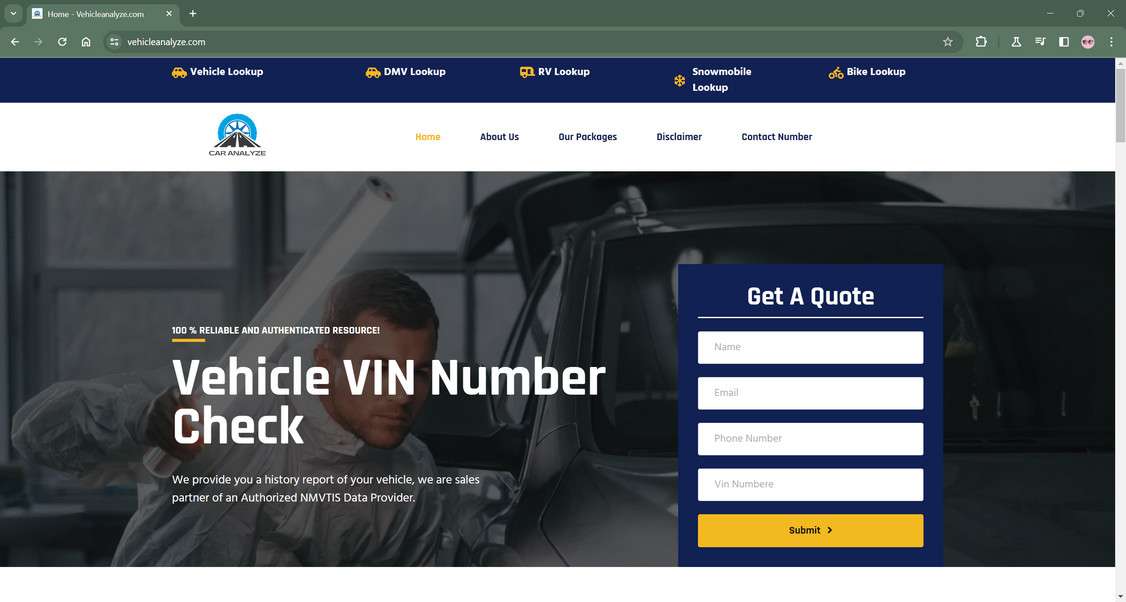

Understanding The Vehicle History Report Scam: Protect Yourself From Fraud
In recent years, the rise of online selling platforms has created new opportunities for scammers. One of the most prevalent scams targeting car sellers is the vehicle history report scam, which has been around since at least 2018. As more people turn to platforms like eBay and Facebook Marketplace to sell their vehicles, it’s crucial to stay informed about potential fraud tactics.
Scammers often pose as interested buyers, claiming they need a vehicle history report from a specific website—usually one that the seller has never heard of. This website typically charges a fee, often around $25, under the guise of providing necessary information about the car's history. However, what most sellers don’t realize is that the "buyer" is actually the owner of the scam website, and once payment is made, communication will likely cease.
The Federal Trade Commission (FTC) has highlighted this scam, warning consumers to be cautious when dealing with unfamiliar websites. They recommend that sellers ask questions and do thorough research before complying with requests for vehicle history reports. By being vigilant and informed, you can protect yourself from falling victim to this type of fraud.
Table of Contents
Understanding the Scam
The vehicle history report scam involves scammers targeting individuals who are selling cars online. When a seller lists their vehicle, they may receive interest from someone posing as a potential buyer. This "buyer" will then request a vehicle history report to prove the car's condition and history, claiming that it will protect their investment. However, they will insist that the report must come from a specific website, which is usually a ruse to extract money from the seller.
It's essential to understand that the scammers are not genuinely interested in the vehicle; their goal is to deceive sellers into paying for a report that provides no real value or insight. Many of these scam websites use deceptive tactics, such as using the ".vin" suffix to seem legitimate. This can mislead sellers into thinking they are dealing with a credible source.
How to Identify a Scam
Identifying a scam can be tricky, but there are several red flags to watch out for. First, be wary of any buyer who insists on a specific website for obtaining a vehicle history report. Legitimate buyers typically do not dictate where to get such reports, as there are several reputable sources available.
Additionally, if a buyer creates urgency—such as insisting you need to act quickly—this is a common tactic used by scammers. Take your time to verify their claims and the website they recommend. Look for reviews or feedback from other users regarding the site to ensure it’s legitimate.
FTC Guidelines for Sellers
The Federal Trade Commission provides guidance for sellers to avoid falling victim to scams. They emphasize the importance of asking questions and researching any website before making a payment. Here are some key points from the FTC:
- Never provide personal information or payment to unfamiliar websites.
- Look for reputable sources for vehicle history reports, such as the National Motor Vehicle Title Information System (NMVTIS).
- If a buyer is pressuring you to use a specific site, consider it a red flag.
Final Thoughts
Understanding the vehicle history report scam is crucial for anyone selling a car online. By recognizing the signs of fraud and following established guidelines, you can protect yourself from financial loss. Always do your research and trust your instincts—if something feels off, it probably is.
The Hidden History Of Razor Blade Disposal In Older Homes
Understanding Tim Walz's Claims: A Thorough Examination Of Context And Truth
Unraveling The Myths: The Truth About Paul Walker's Death



